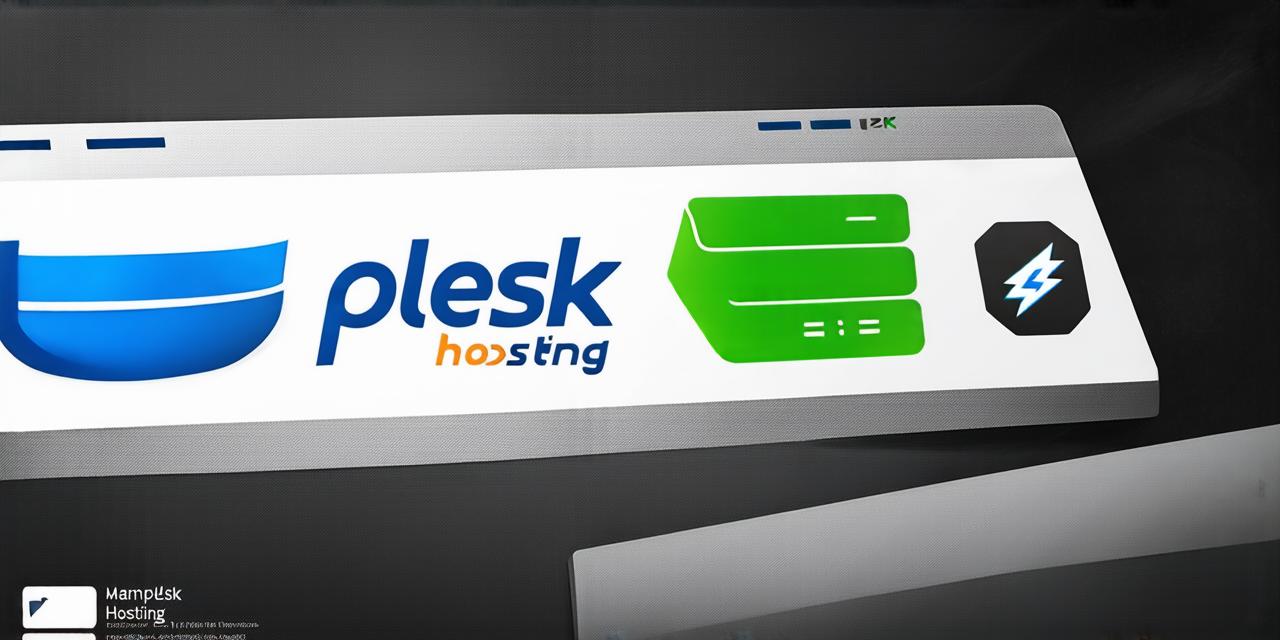If you are involved in hosting development, domain hosting is likely an essential aspect of your work. However, what exactly is domain hosting and how does it work? This comprehensive guide will explore the concept of domain hosting and provide insights into its importance for hosting developers. We’ll cover the basics of domain hosting, as well as the various types of domain hosting available, their benefits, and drawbacks.
What is Domain Hosting?
Domain hosting refers to the process of making a website or application accessible online by providing it with an IP address (Internet Protocol address). The IP address serves as the unique identifier for a website and allows users to access the site through a web browser. When you enter a domain name (such as [www.example.com](http://www.example.com) into your browser, the browser sends a request to a domain name system (DNS) server, which translates the domain name into an IP address and directs the user to the corresponding website or application.
Types of Domain Hosting Services
There are several types of domain hosting services available, each with its own benefits and drawbacks. The most common types of domain hosting services include:
- Shared Hosting
Shared hosting is a popular type of domain hosting that allows multiple websites or applications to share the same server and resources. This is an affordable option for small businesses or individuals who have limited traffic and require basic features such as email hosting, website builders, and content management systems (CMS). However, shared hosting can be vulnerable to security threats and slow performance if one of the sites on the server uses up too many resources.
2. Virtual Private Server (VPS) Hosting
VPS hosting provides a virtualized environment where users have their own dedicated server with its own operating system, CPU, RAM, storage, and other resources. This allows for more control over the server’s configuration and better performance compared to shared hosting. VPS hosting is ideal for businesses that require more resources or need more customization options.
3. Dedicated Server Hosting
Dedicated server hosting provides users with their own physical server, which offers complete control over the server’s resources and configuration. This is an ideal option for businesses that have high traffic, require specific software, or need a high level of security. However, dedicated server hosting can be expensive and requires technical expertise to set up and manage.
4. Cloud Hosting
Cloud hosting uses a network of remote servers located in data centers to host websites and applications. This allows for scalable resources that can be easily accessed and managed through a web-based interface. Cloud hosting is ideal for businesses with fluctuating traffic or those that require high availability and reliability.
5. Managed WordPress Hosting
Managed WordPress hosting is specifically designed for WordPress websites, providing optimized performance, security features, and easy management tools. This type of hosting is ideal for businesses that use WordPress as their website platform.
Benefits and Drawbacks of Domain Hosting Services
The choice of domain hosting service will depend on the specific needs of your business or organization. Here are some benefits and drawbacks to consider when selecting a domain hosting service:
- Shared Hosting
Benefits:
- Affordable option for small businesses and individuals
- Simple setup and management
- Includes basic features such as email hosting, website builders, and CMS
Drawbacks:
- Limited resources and performance if one site on the server uses up too many resources
- Vulnerable to security threats
2. Virtual Private Server (VPS) Hosting
Benefits:
- More control over the server’s configuration and better performance compared to shared hosting
- Ideal for businesses that require more resources or need more customization options
Drawbacks:
- More expensive than shared hosting
- Requires technical expertise to set up and manage
3. Dedicated Server Hosting
Benefits:
- Complete control over the server’s resources and configuration
- Ideal for businesses that have high traffic, require specific software, or need a high level of security
Drawbacks:
- Expensive option
- Requires technical expertise to set up and manage
4. Cloud Hosting
Benefits:
- Scalable resources that can be easily accessed and managed through a web-based interface
- Ideal for businesses with fluctuating traffic or those that require high availability and reliability
Drawbacks:
- More expensive than shared hosting
- May have higher latency compared to dedicated server hosting
5. Managed WordPress Hosting
Benefits:
- Optimized performance for WordPress websites
- Security features and easy management tools
- Ideal for businesses that use WordPress as their website platform
Drawbacks:
- Limited customization options compared to dedicated server hosting
- More expensive than shared hosting
FAQs
1. What is domain hosting, and how does it work?
Domain hosting refers to the process of making a website or application accessible online by providing it with an IP address. Domain name system (DNS) servers translate domain names into IP addresses, directing users to the corresponding website or application.
2. What are the benefits and drawbacks of shared hosting?
Benefits:
- Affordable option for small businesses or individuals who have limited traffic and require basic features such as email hosting, website builders, and content management systems (CMS)
Drawbacks:
- Limited resources and performance if one site on the server uses up too many resources
- Vulnerable to security threats
3. What are the benefits and drawbacks of virtual private server (VPS) hosting?
Benefits:
- More control over the server’s configuration and better performance compared to shared hosting
- Ideal for businesses that require more resources or need more customization options
Drawbacks:
- More expensive than shared hosting
- Requires technical expertise to set up and manage
4. What are the benefits and drawbacks of dedicated server hosting?
Benefits:
- Complete control over the server’s resources and configuration
- Ideal for businesses that have high traffic, require specific software, or need a high level of security
Drawbacks:
- Expensive option
- Requires technical expertise to set up and manage
5. What are the benefits and drawbacks of cloud hosting?
Benefits:
- Scalable resources that can be easily accessed and managed through a web-based interface
- Ideal for businesses with fluctuating traffic or those that require high availability and reliability
Drawbacks:
- More expensive than shared hosting
- May have higher latency compared to dedicated server hosting
6. What are the benefits and drawbacks of managed WordPress hosting?
Benefits:
- Optimized performance for WordPress websites
- Security features and easy management tools
- Ideal for businesses that use WordPress as their website platform
Drawbacks:
- Limited customization options compared to dedicated server hosting
- More expensive than shared hosting



